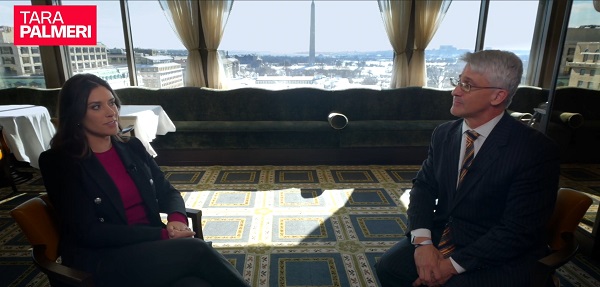Environment
Activist shares how Canadians can fight globalism through local action
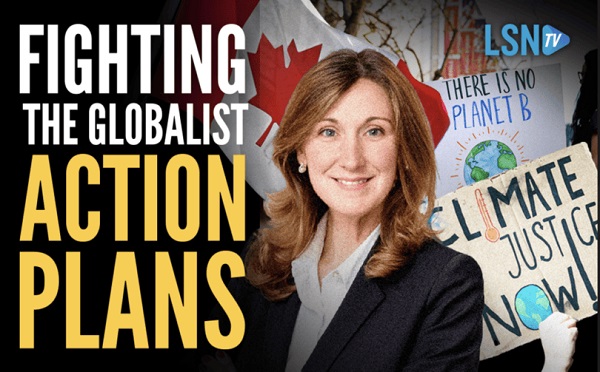
From LifeSiteNews
Maggie Braun, the founder of Kicking International Council out of Local Environmental Initiatives, told LifeSiteNews that there are ‘small wins happening every day’ against globalism by pro-local Canadians.
A pro-freedom advocate told LifeSiteNews that many Canadians have already successfully stood up to the meddling of the United Nations’ globalist agenda, encouraging all citizens to know their rights under the law to protect their local communities.
During a November 20 discussion at the Rankin Culture and Recreation Centre in Pembroke, Ontario, about the ways in which the United Nations are breaking municipal laws and violating property rights in an effort to achieve their globalist goals, Maggie Braun, the founder of Kicking International Council out of Local Environmental Initiatives (KICLEI), shared just what Canadians have been doing to successfully stand up for their local communities.
“There’s small wins happening every day,” Braun told LifeSiteNews in an interview before the discussion.
“Counselors opening up and communicating with the community and our concerns and just bridging that gap and sharing and exchanging information with them and slowly watching them start to make moves to withdraw from the programs or shut down renewable energy projects that don’t make sense in their area,” she shared as an example of successful pushback.
KICLEI is an organization dedicated to empowering local governments to address the needs in their community, and not to blindly follow the direction of groups like the UN.
The group also works to ensure “every Canadian enjoys the right to privacy, property, and self-determination, while fostering respect for our cultural and regional diversity.”
According to Braun, her goal is to “advocate for local environmental stewardship programs over globally mandated climate action plans” by informing Canadians of their property rights, particularly with respect to the attempted implementation of the UN’s climate policies.
“We’ve discovered that these programs are coming in through an organization called ICLEI (Local Governments for Sustainability) and the Federation of Canadian Municipalities, who have brought certain programs down to the municipal level to drive climate action plans,” Braun explained.
Following this discovery, Braun has been working to bring awareness to the issue and persuade city and town councils to vote against UN recommendations which would undermine their citizens’ sovereignty. She revealed that her first victory was in Thorold, Ontario.
Braun explained that a group of four “saw that the environmental committee had openings,” and decided to send delegations to the meeting, start petitions and pack the council with support.
“We did four delegations in a row and by the end of it the staff recommended that they withdraw from the program,” Braun stated. “We just had to show up and do the basic work and it worked.”
“That was our first big win and now we’ve taken those strategies, developed tools that we can bring across the country” to help citizens “push back on the climate action plan.”
Earlier in November, Maggie Hope Braun told LifeSiteNews via email that the meeting will address how global agendas, “particularly UN climate initiatives,” are reshaping municipal priorities and policies across Canada.
Braun voiced concerned over local governments feeling pressured to adopt policies set by international organizations rather than responding to local priorities.
“Programs aligned with UN climate goals often come with strings attached, especially regarding federal funding, which can compel municipalities to follow UN Sustainable Development Goals (SDGs) to access resources,” she wrote. “This reliance can dilute local autonomy, making it difficult for municipalities to allocate budgets according to their own needs, as funding is often tied to specific climate-related expenditures—like electric fleets—that may not suit every community’s practical or economic realities.”
She added that these programs often introduce costly mandates, increase taxes, and, in some cases, affect privacy through the use of data-monitoring smart technologies, all of which can strain communities financially and socially.
“Canadians are beginning to feel these pressures, and many are questioning the long-term impacts on their rights, privacy, and economic well-being,” Braun stated.
Braun’s concerns are hardly unfounded as in March, the World Health Organization (WHO) issued an “urgent” call for countries around the world to sign on to their sovereignty-undermining “Pandemic Accord” by May. However, as May came around, countries were still unable to agree on the treaty, with many refusing to sign away their sovereign rights.
As a result, the treaty was not signed into law, but critics have warned that the WHO will likely continues its efforts to coerce countries to sign the document.
Similarly, Prime Minister Justin Trudeau’s “pandemic prevention and preparedness” bill is set to become law despite concerns raised by Conservative senators that it gives sweeping powers to government, particularly over agriculture.
Business
Biden announces massive new climate goals in final weeks, despite looming Trump takeover
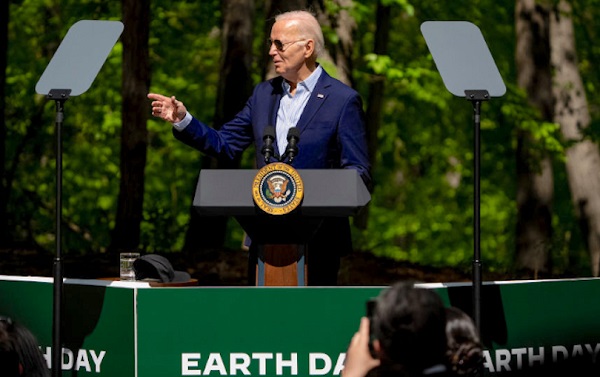
From LifeSiteNews
Outgoing President Joe Biden announced a new climate target of reducing American carbon emissions from 61-66% over the next decade, even though President Trump would be able to undo it as soon as next month.
Outgoing President Joe Biden announced December 19 a new climate target of reducing American carbon emissions of more than 60% over the next decade, even though returning President Donald Trump would be able to undo it as soon as next month.
“Today, as the United States continues to accelerate the transition to a clean energy economy, President Biden is announcing a new climate target for the United States: a 61-66 percent reduction in 2035 from 2005 levels in economy-wide net greenhouse gas emissions,” the White House announced, the Washington Free Beacon reports. The new target will be formally submitted to the United Nations Climate Change secretariat.
“President Biden’s new 2035 climate goal is both a reflection of what we’ve already accomplished,” Biden climate adviser John Podesta added, “and what we believe the United States can and should achieve in the future.”
The announcement may be little more than a symbolic gesture in the end, however, as Trump is widely expected to withdraw the United States from the Paris Climate Agreement upon resuming office in January, in the process voiding related climate obligations.
Trump formally pulled out of the Paris accords in August 2017, the first year of his first term, with then-U.S. Ambassador to the United Nations Nikki Haley stating that the administration would be “open to re-engaging in the Paris Agreement if the United States can identify terms that are more favorable to it, its business, its workers, its people, and its taxpayers.”
Such terms were never reached, however, leaving America out until Biden re-committed the nation to the Paris Agreement on the first day of his presidency, obligating U.S. policy to new economic regulations to cut carbon emissions.
In June, the Trump campaign confirmed Trump’s intentions to withdraw from Paris again. At the time, Trump’s team was reportedly mulling a number of non-finalized drafts of executive orders to do so.
Left-wing consternation on the matter is based on certitude in “anthropogenic global warming” (AGW) or “climate change,” the thesis that human activity, rather than natural phenomena, is primarily responsible for Earth’s changing climate and that such trends pose a danger to the planet in the form of rising sea levels and weather instability.
Activists have long claimed there is a “97 percent scientific consensus” in favor of AGW, but that number comes from a distortion of an overview of 11,944 papers from peer-reviewed journals, 66.4 percent of which expressed no opinion on the question; in fact, many of the authors identified with the AGW “consensus” later spoke out to say their positions had been misrepresented.
AGW proponents suffered a blow in 2010 with the discovery that their leading researchers at the Intergovernmental Panel on Climate Change, East Anglia Climate Research Unit, and National Oceanic and Atmospheric Administration had engaged in widespread data manipulation, flawed climate models, misrepresentation of sources, and suppression of dissenting findings in order to make the so-called “settled science” say what climate activists wanted it to.
Energy
Guilbeault’s Emissions Obsession: Ten Reasons to Call Time Out on Canada’s CO2 Crusade

From the Frontier Centre for Public Policy
Before we collectively devastate our economies, further reduce our birth rates in a misguided attempt to save the planet, squander trillions of dollars, and halt human progress by making energy both scarce and exorbitantly expensive, it’s crucial to remember that human-induced climate change is not a settled fact, but rather a hypothesis largely unsupported by the history of the climate but supported by climate models that have considerable error built into them.
Canadian Environment Minister Steven Guilbeault recently announced a plan requiring the oil and gas industry to cut CO2 emissions by more than one-third from 2019 levels by 2030. This deadline might seem far off, but it also stipulates that at least 20 percent of light-duty vehicle sales must be zero-emission by 2026, a deadline that’s just around the corner. This is all part of Guilbeault’s strategy to achieve the ambitious net-zero emissions target by 2050.
There are at least ten reasons suggesting that this plan is absurd.
- CO2 is Not a Pollutant.
Carbon dioxide is, in fact, a fertilizer crucial for the growth of all vegetation. Higher concentrations of CO2 result in increased crop yields and more productive forests. Healthier forests, in turn, absorb more CO2, providing oxygen in exchange which is essential for the survival of all living organisms including humans.
- CO2 is a Trace Gas
During my extensive career as a university professor, I encountered numerous students eager to support policies that might devastate the livelihoods of thousands of men and women who depend on the oil and gas industry, believing these sacrifices would save the planet. Their near-religious zeal was only matched by their stunning ignorance of basic CO2 facts.
Class surveys I conducted showed that almost one hundred percent of my students were unaware that CO2 is a trace gas, with its atmospheric concentration having varied significantly over centuries and even seasonally. Currently, CO2 represents about 0.04% of the atmospheric gases, or approximately 420 parts per million (ppm). By comparison, nitrogen makes up about 78%, and oxygen around 21%.
The best estimates suggest that human activities contribute roughly 4% of the total annual CO2 emissions (16 ppm). Canada’s share of global emissions is approximately 1.5% (0.24 ppm), essentially a rounding error in the total calculation.
- Why Alberta and Not China?
It is no secret that Guilbeault harbours a special animosity towards Alberta. His energy regulations appear designed to severely impact Alberta’s economy despite the province being a relatively minor player on the global stage. In contrast, China, by far the largest contributor to global CO2 emissions, builds two new coal-powered (dirty) power plants every week and is the primary beneficiary of Canada’s coal exports. Why doesn’t Guilbeault turn his scornful gaze towards the People’s Republic? Even during his visit to China in August 2023 for climate talks, not only did he overlook that country’s appalling environmental track record, to add insult to injury, while there he critiqued Suncor for recommitting to oil sands development, highlighting a troubling policy double standard.
- Watch What They Do, not What They Say
The economic and cultural elites, who incessantly warn of an impending climate catastrophe, seem to contradict their own claims by their extravagant lifestyles. Their opulent residences, frequent use of private jets, and other extravagances reveal a significant disconnect between their rhetoric and their behaviour, suggesting either hypocrisy or a lack of belief in the very crisis they promote.
- Magical Thinking
When they purport to compel the oil and gas industry to adopt new technologies, politicians and policymakers indulge in a particularly delusional form of magical thinking. First, the industry is already one of the most innovative sectors in the economy. Second, these individuals demonstrate a profound ignorance of both climate change and the complex challenges of energy production. As is typical of low-information politicians, they seem to believe that all they need to do to enact change in line with their utopian ideals is to snap their fingers or twitch their collective nose.
- A Multiplier of Human Misery
All the regulations that politicians like Guilbeault introduce with a regularity that rivals the proverbial cuckoo clock have nothing to do with creating new sources of energy or making energy more accessible and affordable. If they were genuinely concerned about their constituents’ welfare, these politicians would incentivize nuclear energy. But they conspicuously do not. These incessant regulations, taxes, and oppressive energy policies serve one purpose: to inflate energy prices so high that middle-class individuals are forced to drive less, reduce their energy use for heating and cooling their homes, and drastically curbing manufacturing. To the extent that such policies persist, they will impose an increasingly devastating economic burden on the poor and the working class.
- Extreme Weather Events
A radical reduction in CO2 emissions will not only lead to a weaker economy and increased poverty, but it will also diminish our capacity to respond to extreme weather conditions, which will occur regardless of the taxation governments impose on human activities.
- The Used-Car Salesman Syndrome
You know you’re being conned when a used car salesperson fails to mention the downsides of the vehicle being considered. The same skepticism and caution should be applied to politicians who tout only the benefits of their proposed policies without discussing the costs. Either they are blissfully unaware of these costs, or they believe they will be insulated from the real-world repercussions of their harmful policies due to their status, wealth, or connections.
- Anti-Human Perspective
While it’s unwise to gratuitously attribute malicious intent to anyone, the evidence suggests that proponents of radical climate change policies operate from what can only be described as an anti-human perspective. They view human beings as liabilities and parasites rather than, as the Judeo-Christian tradition asserts, the valuable assets they truly are.
- A Matter of Debate
Before we collectively devastate our economies, further reduce our birth rates in a misguided attempt to save the planet, squander trillions of dollars, and halt human progress by making energy both scarce and exorbitantly expensive, it’s crucial to remember that human-induced climate change is not a settled fact, but rather a hypothesis largely unsupported by the history of the climate but supported by climate models that have considerable error built into them.
In conclusion, Bjorn Lomborg, the Danish political scientist and founder of the prestigious Copenhagen Consensus Center—an organization renowned for producing some of the most authoritative studies on environmental issues—wisely reminds us that while there are environmental concerns needing attention, it’s questionable whether climate change constitutes an existential crisis that warrants dedicating all our resources at the expense of human life and flourishing.
Pierre Gilbert is Associate Professor Emeritus at Canadian Mennonite University. He writes here for the Frontier Centre for Public Policy.
-

 espionage2 days ago
espionage2 days agoCanadian commission confirms ‘threat of foreign interference’ in elections is ‘real’
-
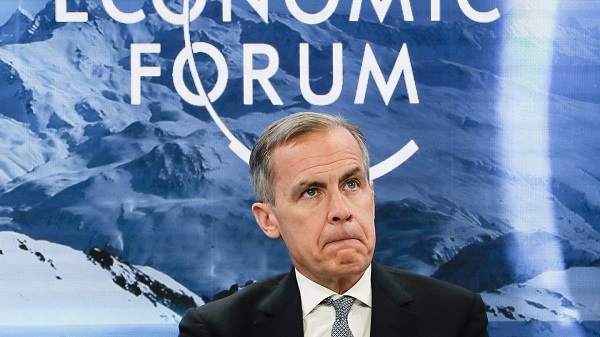
 Banks2 days ago
Banks2 days agoThe Great Exodus from the Net Zero Banking Alliance has arrived
-

 Business2 days ago
Business2 days agoA Lone Federal Political Voice Opposing Retaliatory Tariffs
-

 armed forces2 days ago
armed forces2 days agoCanada could cut deal with U.S.—increase defence spending, remove tariffs
-

 Bruce Dowbiggin2 days ago
Bruce Dowbiggin2 days agoThe Limping Loonie: Are Canada’s Pro Sports Team In Trouble Again?
-

 Business2 days ago
Business2 days agoCanada reaches last minute deal to delay Trump Tariffs
-
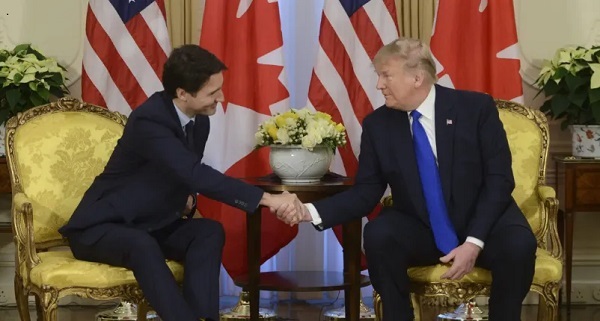
 Business1 day ago
Business1 day agoTrudeau Promises ‘Fentanyl Czar’ and US-Canada Organized Crime Strike Force To Avert U.S. Tariffs
-
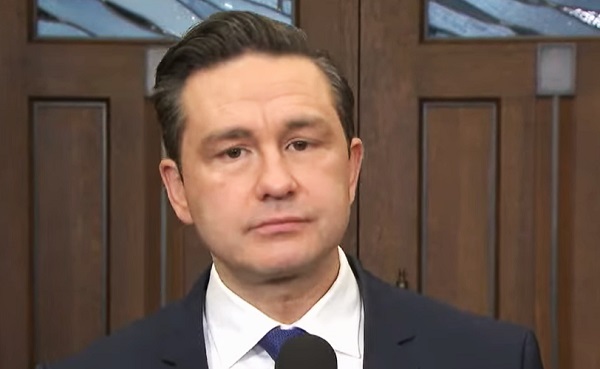
 Business2 days ago
Business2 days agoPoilievre Says Both Sides Lose Trade Wars, Promotes Inter-Provincial Trade




